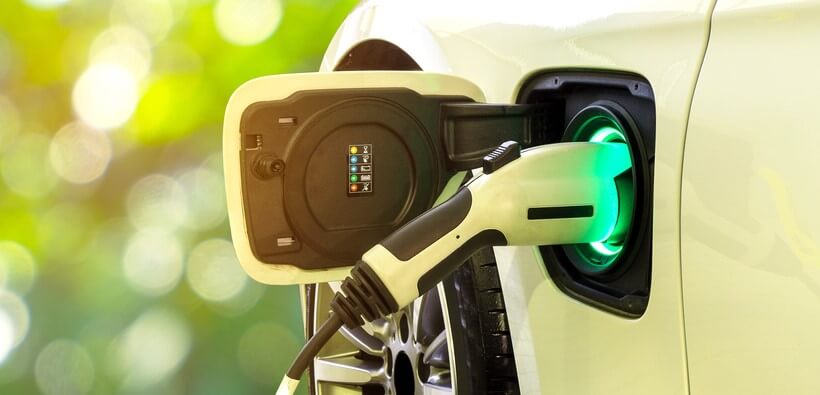Electric Cars: How Do They Affect Insurance?

Nowadays, the electric car industry is gaining momentum. Plus, you have several brands to choose from, including Tesla, Fisker, and familiar names like Chevrolet, Volvo, and GM.
Although the electric car has been around since 1832 when Robert Anderson invented it, it is gaining wide popularity in the 21st century for beneficial reasons, including:
- Reduced environmental impact
- Lower inhaled emission
- Extended battery life
- Less expense for maintenance since an EV doesn’t need oil changes
At the same time, you’ve probably wondered if purchasing an electric car would affect your insurance rates. Well, we have the answers you’ve been looking for when it comes to electric car insurance premiums.
Purchase Price and Perks of Ownership
An EV uses an electric motor powered by electricity from batteries or a fuel cell. Unlike conventional vehicles that use a gasoline- or diesel-powered engine, an electric car does not rely on combustible engines. So, one advantage is decreasing your carbon footprint and noise pollution. EVs tend not to make a sound when zooming down the road.
In the past, electric cars could only travel short distances on a single charge — around 100 miles or fewer — but most car lovers couldn’t afford to acquire an electric car without breaking the bank. But today, some electric vehicles cost less than $40,000 and can go over 370 miles on a single battery charge. Thus, the drop in price and longer battery life make electric cars a viable option for families in the market for a new vehicle.
How Much Would Insurance Cost?
Electric vehicle insurance costs are 23% more expensive compared to those for combustion models. This figure derives from comparing four types of electric cars to their equivalent gas-powered cars. For example, if you have insurance coverage on a gasoline-fueled vehicle where the cost is $1,000 a year, you may pay between $1,180 to $1,320 a year with an electric car.
Even though driving an electric car does not make one a riskier driver, it makes you seem like a greater liability in the eyes of an insurance company because these cars are generally more expensive than traditional cars, which makes any repairs more costly.
How Much of an Increase Do I Anticipate?
The increase depends on the state where you reside and the make and model of your electric car. For example, in New York, the rates are 1.18 times higher than those for a gas-fueled vehicle.
Of course, other variances involve which insurance company you’ll be working with and the type of policy you need. Thus, visiting with an agent or an insurance expert would be well worth the time, along with researching different companies.
What Factors Determine the Rates?
The higher purchase price also makes the EV a bit pricier to insure than its gas-powered counterpart. Another reason for the pricing difference comes from electric cars being more expensive and easier to damage than cars running on gas.
For instance, an electric car has cutting-edge technology, sophisticated sensors, high-capacity batteries, and so much more. As an illustration of this, if you crashed a Chevy Spark EV, it would cost you more to repair than a normal Chevy Spark. Therefore, despite not being a risky driver, the insurance company may be potentially exposed to more expenses than they would in insuring a gas car.
Repairs on the Inside
Unlike conventional vehicles that use a gasoline- or diesel-powered engine, an electric car does not rely on combustible engines. Rather, though not as “bulky,” the operating system is a bit more sophisticated with parts that are specific to an EV. Take the electric traction motor, for example. It relies on the power from the traction battery pack to drive the vehicle’s wheels, but some types possess the capacity to both drive and regenerate. So if you needed this part replaced for whatever reason, and your car had the kind that performs both functions, then it’s going to cost you more to obtain that particular part.
Repairs on the Outside
Furthermore, some EVs’ chassis and frames possess slightly different qualities from other vehicles due to functionality. One such example is the 2022 Fisker Ocean. Its frame is designed in such a way as to protect the battery pack if the car is hit on either side. The structure contains side-collision beams, according to the automaker. However, in the event of a front-side collision that causes severe damage to the chassis and frame, this feature will cost more than an average body-repair job of a traditional steel- or aluminum-framed vehicle. Consequently, the complexity of repairs and the expensive price tag for the parts will drive your insurance rates a bit higher.
Batteries
Another reason for the higher insurance rates relates to the cost of replacing a battery pack if damages are incurred during an accident. For instance, the Chevy Bolt’s battery pack costs $15,000. That price doesn’t include labor.
Other Factors Affecting Rates
Aside from those characteristics, factors that affect electric vehicle insurance policies do not differ from covering a conventional car. These factors include:
- Driving history
- Your age
- Your place of residence
- The model of the vehicle
- The type of coverage
Hopefully, as electric cars become a norm, the aforementioned factors and availability of parts will drive down insurance costs. In the meantime, you can always consult with an insurance agent who can give you a free, no-obligation quote.
Do Any Discounts Apply to the Rates?
Just as insurance companies offer discounted rates based on varying criteria, some do the same for electric car owners. Thus, you can still discuss the possibility of a lower insurance premium with a company representative. Likewise, when going into the bargaining phase, you might keep the following information in mind:
- The “Green” aspect — where some insurance companies have developed discounts specifically for electric car owners such as a “green vehicle” or “alternative vehicle” rebate or markdown
- Working with your current insurance company — if you already have homeowners or renter’s insurance, approach your agent about the possibility of bundling car and home insurance since some companies offer discounts for multiple types of coverage.
- Number crunching — before you purchase an electric vehicle, try to add up costs for the monthly car payment, regular maintenance, and insurance. By having these numbers available, you’ll go into haggling situations already armed with a set amount you’ll be able to afford.
Which Companies Offer Insurance for Electric Cars?

Almost all major car insurance companies that offer policies for gasoline vehicles also offer coverage for electric cars. Moreover, they provide the same types of coverages such as:
- Liability
- Collision
- Comprehensive
This allows for plenty of opportunities to shop around and compare quotes to find the best premium.
Do Any EV Manufacturers Offer Their Own Insurance Policies?
Tesla offers car insurance policies on a limited basis for owners of their Roadster, California Model 3, Model X, and Model S. They claim the manufacturer had started this program because of their exclusive knowledge of the construction, mechanisms, and serviceability of their vehicles. Furthermore, they also advertise a premium that is 20 to 30% lower than most standard premiums.
What Are Other Ways to Save on Rates?
The first way to save is to maintain an excellent driving record with no at-fault accidents or traffic violations. Other ways to save include any of the following:
Shopping Around for Quotes
As mentioned, you can start with the insurance company that already has your patronage, but if they still can’t offer you a great rate for bundling policies, then you might need to shop around for quotes until you find the right price.
Another factor to discuss with your agent regarding quotes is your deductible. One thing to remember is the higher you go with your deductible, the more your rates will decrease.
Looking to Tesla or Other Companies That Insure Electric Vehicles
When you purchase your electric vehicle, sometimes the insurance coverage is offered right on the spot. This is one alternative to consider, as well as an insurance company that has the added focus of battery leasing and recharging.
Would I Get a Tax Credit?
So far, 45 states and the District of Colombia offer tax incentives for electric vehicles. Based on the state where you live, electric cars might come with some tax incentives. You can reach out to your state’s department of motor vehicles, the energy department, or your local insurance agent to find out about any incentives tied in with owning an electric car.
Benefits vs. Cost
So, where you might be saving on fueling costs, you might pick up more expense on the insurance premium for your electric car. On the other hand, the lower prices on electric vehicles are a good sign of the growing trend to go green because more buyers will be able to afford them. Thus, you can either keep your thumb on the pulse of the EV market to see if the price of parts and repairs might be driven down by availability, or do some research to find reasonably priced premiums and some rebates or tax incentives.
Remember to contact one of our representatives who can answer your questions and provide quotes. Going with green energy doesn’t have to affect your bank account negatively.


